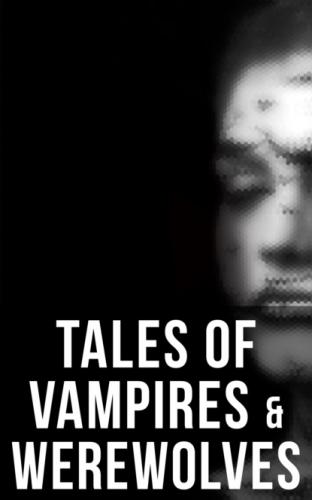Tales of Vampires & Werewolves. Редьярд Джозеф Киплинг
27. [ In Europe, money buys this world, and delivers you from the pains of purgatory; amongst the Hindus, it furthermore opens the gate of heaven.]
28. [ This part of the introduction will remind the reader of the two royal brothers and their false wives in the introduction to the Arabian Nights. The fate of Bhartari Raja, however, is historical.]
29. [ In the original, “Div”—a supernatural being god, or demon. This part of the plot is variously told. According to some, Raja Vikram was surprised, when entering the city to see a grand procession at the house of a potter and a boy being carried off on an elephant to the violent grief of his parents The King inquired the reason of their sorrow, and was told that the wicked Div that guarded the city was in the habit of eating a citizen per diem. Whereupon the valorous Raja caused the boy to dismount; took his place; entered the palace; and, when presented as food for the demon, displayed his pugilistic powers in a way to excite the monsters admiration.]
30. [ In India, there is still a monastic order the pleasant duty of whose members is to enjoy themselves as much as possible. It has been much the same in Europe. “Representez-vous le convent de l’Escurial ou du Mont Cassin, ou les cenobites ont toutes sortes de commodities, necessaires, utiles, delectables, superflues, surabondantes, puisqu’ils ont les cent cinquante mille, les quatre cent mille, les cinq cent mille ecus de rente; et jugez si monsieur l’abbe a de quoi laisser dormir la meridienne a ceux qui voudront.”—Saint Augustin, de l’Ouvrage des Moines, by Le Camus, Bishop of Belley, quoted by Voltaire, Dict. Phil., sub v. “Apocalypse.”]
31. [ This form of matrimony was recognized by the ancient Hindus, and is frequent in books. It is a kind of Scotch wedding—ultra-Caledonian—taking place by mutual consent, without any form or ceremony. The Gandharbas are heavenly minstrels of Indra’s court, who are supposed to be witnesses.]
32. [ The Hindu Saturnalia.]
33. [ The powders are of wheaten flour, mixed with wild ginger-root, sappan-wood, and other ingredients. Sometimes the stuff is thrown in syringes.]
34. [ The Persian proverb is—“Bala e tavilah bar sat i maimun”: “The woes of the stable be on the monkey’s head!” In some Moslem countries a hog acts prophylactic. Hence probably Mungo Park’s troublesome pig at Ludamar.]
35. [ So the moribund father of the “babes in the wood” lectures his wicked brother, their guardian: “To God and you I recommend My children deare this day: But little while, be sure, we have Within this world to stay.” But, to appeal to the moral sense of a goldsmith!]
36. [ Maha (great) raja (king): common address even to those who are not royal.]
37. [ The name means. “Quietistic Disposition.”]
38. [ August. In the solar-lunar year of the Hindu the months are divided into fortnights—light and dark.]
39. [ A flower, whose name frequently occurs in Sanskrit poetry.]
40. [ The stars being men’s souls raised to the sky for a time pro portioned to their virtuous deeds on earth.]
41. [ A measure of length, each two miles.]
42. [ The warm region below.]
43. [ Hindus admire only glossy black hair; the “bonny brown hair” loved by our ballads is assigned by them to low-caste men, witches, and fiends.]
44. [ A large kind of bat; a popular and silly Anglo-Indian name. It almost justified the irate Scotchman in calling “prodigious leears” those who told him in India that foxes flew and tress were tapped for toddy.]
45. [ The Hindus, like the European classics and other ancient peoples, reckon four ages:—The Satya Yug, or Golden Age, numbered 1,728,000 years: the second, or Treta Yug, comprised 1,296,000; the Dwapar Yug had 864,000 and the present, the Kali Yug, has shrunk to 832,000 years.]
46. [ Especially alluding to prayer. On this point, Southey justly remarks (Preface to Curse of Kehama): “In the religion of the Hindoos there is one remarkable peculiarity. Prayers, penances, and sacrifices are supposed to possess an inherent and actual value, in one degree depending upon the disposition or motive of the person who performs them. They are drafts upon heaven for which the gods cannot refuse payment. The worst men, bent upon the worst designs, have in this manner obtained power which has made them formidable to the supreme deities themselves.” Moreover, the Hindu gods hear the prayers of those who desire the evil of others. Hence when a rich man becomes poor, his friends say, “See how sharp are men’s teeth!” and, “He is ruined because others could not bear to see his happiness!”]
47. [ A pond, natural or artificial; in the latter case often covering an extent of ten to twelve acres.]
48. [ The Hindustani “gilahri,” or little grey squirrel, whose twittering cry is often mistaken for a bird’s.]
49. [ The autumn or rather the rainy season personified—a hackneyed Hindu prosopopoeia.]
